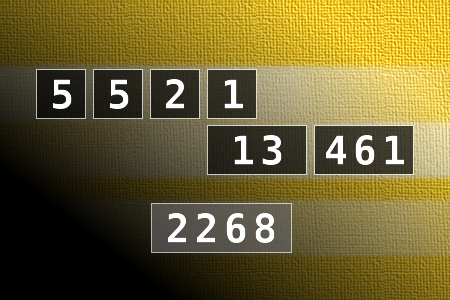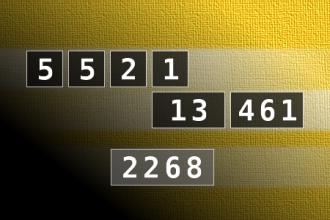Calculate the number 2268
NUMBERMANIA: Calculate the number 2268 using numbers [5, 5, 2, 1, 13, 461] and basic arithmetic operations (+, -, *, /). Each of the numbers can be used only once.Correct answers: 1
#brainteasers #math #numbermania


